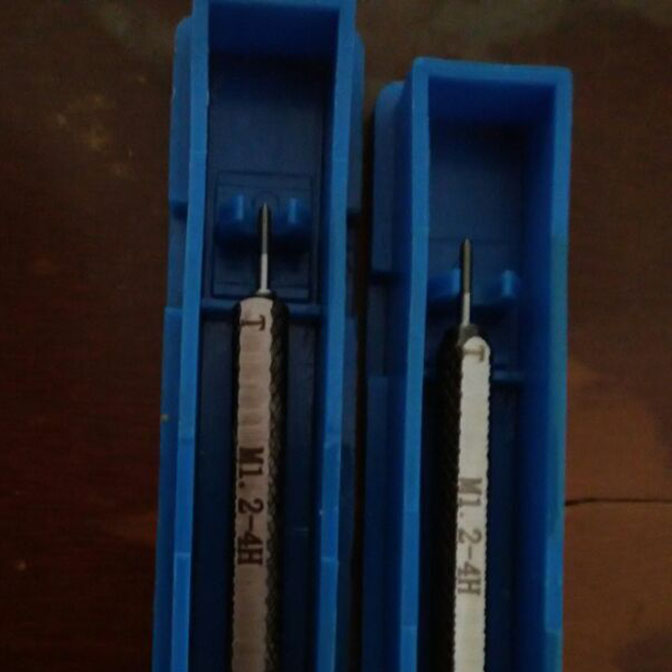12 月 . 04, 2024 10:25 Back to list
Understanding Various Types of Plug Gauges for Precision Measurement in Manufacturing
Understanding Types of Plug Gauges
In the realm of manufacturing and quality control, precision is paramount. One of the key tools used to ensure precision in the measurement of hole diameters is the plug gauge. Plug gauges are essential instruments for checking the size and fit of holes in various materials, and understanding their types is crucial for engineers and quality assurance professionals.
What is a Plug Gauge?
A plug gauge is a cylindrical tool designed to check the size of holes, ensuring they meet specific tolerances. Typically, plug gauges are made from high-quality steel to withstand wear and maintain accuracy over time. The primary purpose of these gauges is to facilitate quick and accurate checks of hole dimensions without needing complex measurement devices.
Types of Plug Gauges
Plug gauges can be categorized based on several parameters, including their design, application, and the size of the hole they are intended to measure. Here are the main types of plug gauges
1. Go and No-Go Gauges The most common classification of plug gauges is into Go and No-Go gauges. The Go gauge is engineered to fit into a hole that is within tolerance, while the No-Go gauge will not fit into a hole that is at the upper limit of tolerance. This simplified two-gauge system allows manufacturers to quickly determine if the workpiece is acceptable or not.
2. Regular Plug Gauges These gauges come in a standard set of sizes and are used for general hole measurements. While regular plug gauges are effective, they may not suffice in situations requiring highly specialized tolerances.
3. Tapered Plug Gauges Designed for testing tapered holes or holes that require a specific taper ratio, these gauges are shaped conically. They are especially useful in industries dealing with hydraulic fittings, where a precise fit is crucial for leaks and performance.
types of plug gauge

4. Thread Plug Gauges Threaded holes require a special type of plug gauge to ensure that the threads are correctly formed. Thread plug gauges feature male threads that match the specified diameter and pitch. They can be Go or No-Go gauges and are vital in industries where threaded components are common, such as aerospace and automotive manufacturing.
5. Specialty Plug Gauges These gauges are custom-made for specific applications or dimensions that fall outside standard measurements. Specialty plug gauges can accommodate unique shapes, sizes, or materials, ensuring a perfect fit in non-standard conditions or specific designs.
Applications of Plug Gauges
Plug gauges find extensive applications across various industries, such as automotive, aerospace, and heavy machinery. They are commonly employed
- In production lines to ensure parts are manufactured within specified tolerances. - As part of routine checks during maintenance to confirm that holes have not been damaged or worn beyond acceptable limits. - In quality assurance testing, where quick and reliable measurements prevent defective products from reaching the consumer.
Benefits of Using Plug Gauges
The advantages of using plug gauges are manifold. Firstly, they provide a straightforward and effective means of measuring hole sizes, making them accessible even to non-specialist operators. Secondly, plug gauges reduce the time spent on measurements compared to more complex measuring equipment. Finally, their robust and simple design ensures durability and reliability, making them a cost-effective choice for manufacturers.
Conclusion
In summary, plug gauges are indispensable tools in the world of manufacturing and quality assurance. By understanding the different types of plug gauges, from standard go and no-go gauges to specialized threaded and tapered options, professionals can ensure that their products meet stringent quality standards. The application of these tools across various industries underscores their importance in maintaining precision and consistency in manufacturing processes. As technology continues to advance, the design and functionality of plug gauges may evolve, but their fundamental role in ensuring quality will remain steadfast.
-
Y Type Strainers: A Comprehensive GuideNewsOct.18,2024
-
Understanding Water Valve Options for Your NeedsNewsOct.18,2024
-
Functions and TypesNewsOct.18,2024
-
An Essential Component for Fluid SystemsNewsOct.18,2024
-
Adjustment and ReplacementNewsOct.18,2024
-
Slow Closing Check Valves: A Key Component in Fluid SystemsNewsOct.08,2024
Related PRODUCTS









